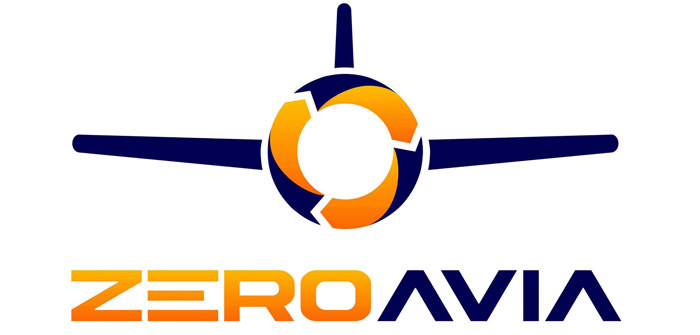ZeroAvia has secured a £12.3 million ($17 million USD) grant from the Aerospace Technology Institute (ATI) affiliated with the UK government. The company simultaneously raised £16 million ($21.4 million USD) in series A funding from China-based venture capital firm Horizons Ventures.
The primary purpose of the funding is to complete the HyFlyer II project, with a goal of completing the world’s first hydrogen-electric flight in a 19-seat aircraft and 350-mile route by early 2023. The funds are being used to develop a certifiable hydrogen-electric powertrain that is capable of powering an aircraft this size and for the duration of similarly-sized or shorter routes.
ZeroAvia’s R&D efforts saw the company complete the world’s first flight of a commercial-grade aircraft utilizing hydrogen-electric technology out of the ZeroAvia R&D facility in Cranfield, England in September 2020. ZeroAvia’s proprietary hydrogen-electric fuel cell powertrain was used in a 6-seat Piper Malibu M350, making it a milestone for the HyFlyer I project, which was also previously a recipient of ATI grants.
HyFlyer II and Green Hydrogen Options to Be Market-Ready By 2023
The HyFlyer II initiative is building on the success of HyFlyer I, and the recent investment partnership with British Airways to accelerate its pivot from fossil fuels to more renewable energy sources that simultaneously reduce operating costs. Hydrogen fuel cell technology has been heralded by European aviation industry leaders like Airbus and the European Regions Airlines Association as a practical step forward to reducing carbon in aviation in the near future. British Airways is striving to reach zero emissions by 2050 and has supported ZeroAvia in shifting towards green hydrogen.
While the HyFlyer I saw the successful flight of a 6-seat aircraft, the HyFlyer II project will increase the capacity to a 19-seat aircraft. This is a significant development as 19-seat aircraft, such as the Cessna 208 Caravan and Viking Air DHC-6 Twin Otter, are frequently used in both global cargo logistics and regional aviation. ZeroAvia’s 600kW hydrogen-electric powertrain can be easily adopted by both logistics companies and commercial airlines to make zero-carbon flights for short-haul routes a reality much sooner than passengers realize. Soon, long-distance routes on electrically powered and hydrogen-fueled planes can also become a reality.
ZeroAvia expects the HyFlyer II prototype to complete its test flight in early 2023 and to bring hydrogen-electric technology to market by then as well. In addition to improving fuel ability, ZeroAvia has the first-mover advantage in reducing the price risks of the entire alternative fuel market as more airlines seek reductions in overhead costs and to move towards more sustainable fuels to increase consumer confidence in flying.
Val Miftakhov, CEO of ZeroAvia, comments: “We are delighted with the ATI’s decision to back our 19-seat powertrain development programme. This project is instrumental for delivering a market-ready hydrogen-powered solution for 2023 that makes passenger-ready zero carbon aviation a reality. It once again demonstrates the ‘Jet Zero’ ambition of the UK Government to take a leading role in making flight sustainable and we are proud that they have put their faith in us again to deliver another milestone for hydrogen-electric aviation.”
Partnership with European Marine Energy Centre (EMEC) and Aeristech
ZeroAvia worked with EMEC on the HyFlyer I project to test and deliver green hydrogen fueling systems needed to power the aircraft, and the organization also helped orchestrate flight tests and mobile fuelling platforms specifically designed for airports. EMEC has an interest in expediting green energy and technologies for the aviation industry, and outfitting Europe’s airports with suitable refuelling stations to meet the demand for commercial aviation needs.
In addition to EMEC, ZeroAvia is collaborating with Aeristech for the first time. Aeristech develops efficient and power-dense air compressor solutions, which ZeroAvia wants to incorporate into the 19-seat powertrain’s infrastructure.
The HyFlyer II project is a crucial milestone in ZeroAvia’s R&D timeline, as hydrogen might become the primary energy source for the aviation industry, allowing commercial long-haul flights to reach net zero. With the contributions of the collaboration with EMEC and Aeristech, electrified commercial aircraft that can seat greater numbers of passengers is no longer the realm of science fiction.
About ZeroAvia
ZeroAvia is a global leader in zero-emission aviation with an emphasis on hydrogen-electric power solutions for a variety of aviation markets, namely the 500-mile range and 10-20 seat aircraft markets. With operations in the United States and United Kingdom, ZeroAvia has secured experimental certificates for its prototype aircraft from both the CAA and FAA, surpassed major milestones with its flight tests, and is on track for commercialization by 2024. The company is supported by Horizon Ventures, Breakthrough Energy Ventures, and its UK operations are supported by Innovate UK, the Aerospace Technology Institute. ZeroAvia is also part of the UK Government’s Jet Zero Council.
Follow ZeroAvia on Twitter





